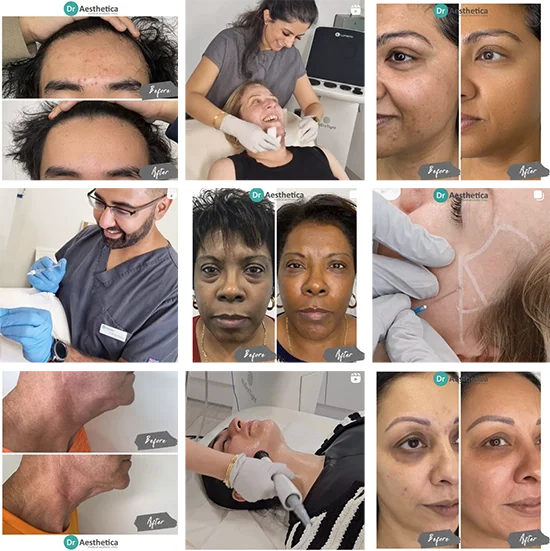Bruxism can change the face of your shape, it's true! It can even cause premature ageing as well as other avoidable side effects, but fret not there are solutions and don’t worry you can trust my opinion as I’ve dealt with hundreds of Bruxism patients.
How Bruxism Can Change Your Bite and Jawline?
Bruxism is the grinding or clenching of teeth, which can lead to a range of dental and health problems. The constant pressure and motion of grinding can cause wear and tear on your teeth, leading to changes in your bite and tooth positioning. The repetitive jaw movement and muscle tension from Bruxism can also cause jaw muscle fatigue and pain, leading to changes in your jawline appearance.
If left untreated, bruxism can result in TMJ disorders, which can further affect the functionality of your bite and jawline, resulting in a more square or boxy-looking jawline.
The Impact on Facial Muscles and Skin
Bruxism can have a significant impact on facial muscles and skin. The repetitive muscle activity from Bruxism can lead to muscle fatigue, tension, and pain in the jaw and facial muscles. Over time, this can result in hypertrophy or enlargement of the masseter muscles, which are located at the angle of the jaw and play a crucial role in chewing.
Furthermore, Bruxism can also affect the skin and soft tissues of the face. The constant muscle tension and pressure can lead to wrinkles, particularly around the eyes and forehead. Additionally, Bruxism can cause headaches and migraines, which can further worsen facial tension and contribute even more to a tired, worn-out appearance.
Can Bruxism Cause Premature Aging and Facial Wrinkles?
Bruxism can cause damage to the skin and soft tissues of the face. The excessive muscle activity can lead to wrinkles, particularly around the eyes and forehead. The constant muscle tension can also cause the skin to lose elasticity and sag, resulting in an aged appearance. In some cases, Bruxism can also cause the skin to lose volume, particularly in the cheeks and around the mouth, resulting in a hollow and prematurely aged appearance
That’s why it is important to treat your Bruxism early on. By addressing Bruxism early on, individuals can help protect their facial muscles and skin from the damaging effects of this condition.

This article was read and reviewed by the face of DR Aesthetica himself - DR Baldeep Farmah.
Identifying the Signs of Bruxism-Related Facial Changes
It is possible for individuals to check if they've had facial changes because of Bruxism by checking for certain signs. These may include a more square-looking jawline or a hollow and gaunt appearance. Additionally, they can examine their teeth for signs of wear and damage, such as flattening or chipping. Pain or discomfort in the jaw, headaches, earaches, and neck pain can also show changes related to Bruxism
Is It Possible to Reverse the Face Change Effects?
Changes in facial appearance caused by Bruxism can be reversible to some extent. With appropriate care and treatment, it is possible. Reducing jaw muscle activity can help the jaw muscles recover, leading to a reduction in muscle size and an improvement in the jawline. Relaxation techniques and stress management strategies can help to reduce muscle tension, allowing the skin to recover and wrinkles to soften or disappear.

It's important to note that muscle recovery can take time though. Skin recovery can be aided through the use of skincare products that promote collagen production and reduce the appearance of wrinkles.
Early diagnosis and prompt treatment are key to reversing the effects of Bruxism on facial muscles and skin. Seeking appropriate care can help prevent further damage to the teeth and facial appearance, and allow for muscle and skin recovery. With proper care and treatment, individuals with Bruxism can achieve a more youthful and refreshed look. To begin recovering from Bruxism it's important you start treating your Bruxism today!
You can view a list of potential treatments for Bruxism here.
However do you want a treatment that:
- Lasts approximately 6 months?
- Only requires 24 hours of downtime
- Is so painless that it requires no anaesthetic
- Displays results by 4 weeks
Then a Botox treatment may be perfect for you! View more information on a Botox treatment here:


